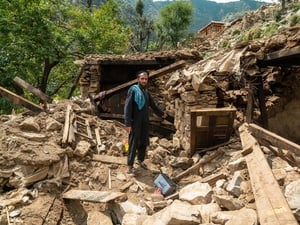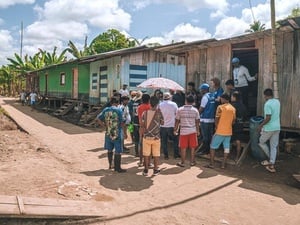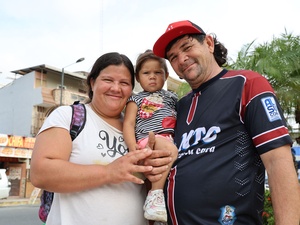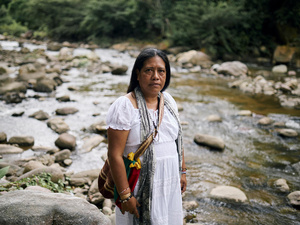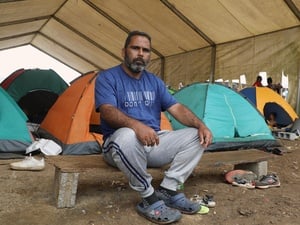As asylum applications by Venezuelans soar, UNHCR steps up response
As asylum applications by Venezuelans soar, UNHCR steps up response

A mother and child cross the bridge linking Cucuta, Colombia with Venezuela, in June 2010. The number of Venezuelans seeking asylum in other countries, including Colombia, is soaring.
As the situation in Venezuela continues, the number of asylum applications by citizens of that country has soared. Last year, there were some 27,000 Venezuelan asylum seekers worldwide. So far in 2017, nearly 50,000 have applied for asylum.
The main countries of destination for Venezuelan asylum seekers this year have been the United States (18,300), Brazil (12,960), Peru (4,453), Spain (4,300) and Mexico (1,044). Aruba, Canada, Chile, Colombia, Costa Rica, Curacao, Ecuador and Trinidad and Tobago, have also received asylum applications by Venezuelans in 2017.
The above figures represent only a fraction of the total number of Venezuelans who may be in need of international protection, as many do not register as asylum seekers, despite the fact that many have indicated that they fled because of violence and insecurity, as well as an inability to meet daily subsistence needs.
Thanks to a long standing tradition of solidarity in Latin America, Venezuelan citizens in neighbouring countries can benefit from various forms of temporary residence in those countries. However, due to bureaucratic obstacles, long waiting periods and high application fees, many Venezuelans opt to remain in an irregular situation instead of using asylum or migratory procedures to regularize their stay.
It is estimated that among the 300,000 Venezuelans in Colombia, 40,000 in Trinidad and Tobago and 30,000 in Brazil, many may be in this situation. UNHCR, the UN Refugee Agency, is working with the authorities of these countries to step up registration and profiling, reinforce reception capacities and provide basic humanitarian assistance to asylum seekers with specific needs. Faced with large arrivals, all three countries have initiated response plans. The Colombian and Brazilian authorities are coordinating their responses and discussing harmonized approaches.
Some of the major challenges posed by the large influx of Venezuelans in neighbouring countries include international protection and physical security considerations, lack of documentation, sexual and gender-based violence, exploitation and abuse, and lack of access to basic rights and services. In certain areas, armed groups and criminal gangs are exploiting the newly-arrived Venezuelans and the local population.
UNHCR is also concerned that indigenous groups living along Venezuela’s borders with Brazil and Colombia are being increasingly affected by the situation and have fled their home territories. Particular attention to the rights of these communities as well as a differentiated and targeted protection and humanitarian response is required.
Considering the evolving situation in Venezuela, it is projected that people will continue to leave the country. UNHCR is stepping up its response accordingly. In Colombia, UNHCR has carried out interviews of Venezuelan arrivals to establish protection needs and is strengthening its presence in border areas and its capacity to provide basic humanitarian assistance, including through multi-purpose cash grants, to Venezuelan asylum seekers with specific needs.
In Brazil, UNHCR, through a national partner, is providing funds to cover some activities carried out by civil society organizations in Boa Vista, Pacaraima and Manaus. The Federal Police, with UNHCR support, has deployed additional staff to Roraima State to assist with the registration of asylum claims. In Trinidad and Tobago, UNHCR is assisting the government to progressively assume responsibility for registration, issuance of documentation and refugee status determination.
UNHCR reiterates its call to States to protect the rights of Venezuelans, particularly the right to seek asylum and to have access to fair and effective asylum procedures. Effective access to protection requires the adoption of measures to facilitate documentation, access to basic services and livelihood options. At the same time, Venezuelans who do not wish to apply for asylum or whose asylum claims have been rejected should be helped to regularize their situation through alternative means. There should be no involuntary returns to Venezuela.
For more information on this topic, please contact:
- In Geneva, William Spindler, [email protected], 41 79 217 3011
- In Mexico city, Francesca Fontanini, [email protected], +52 1 (55) 9197 2690


